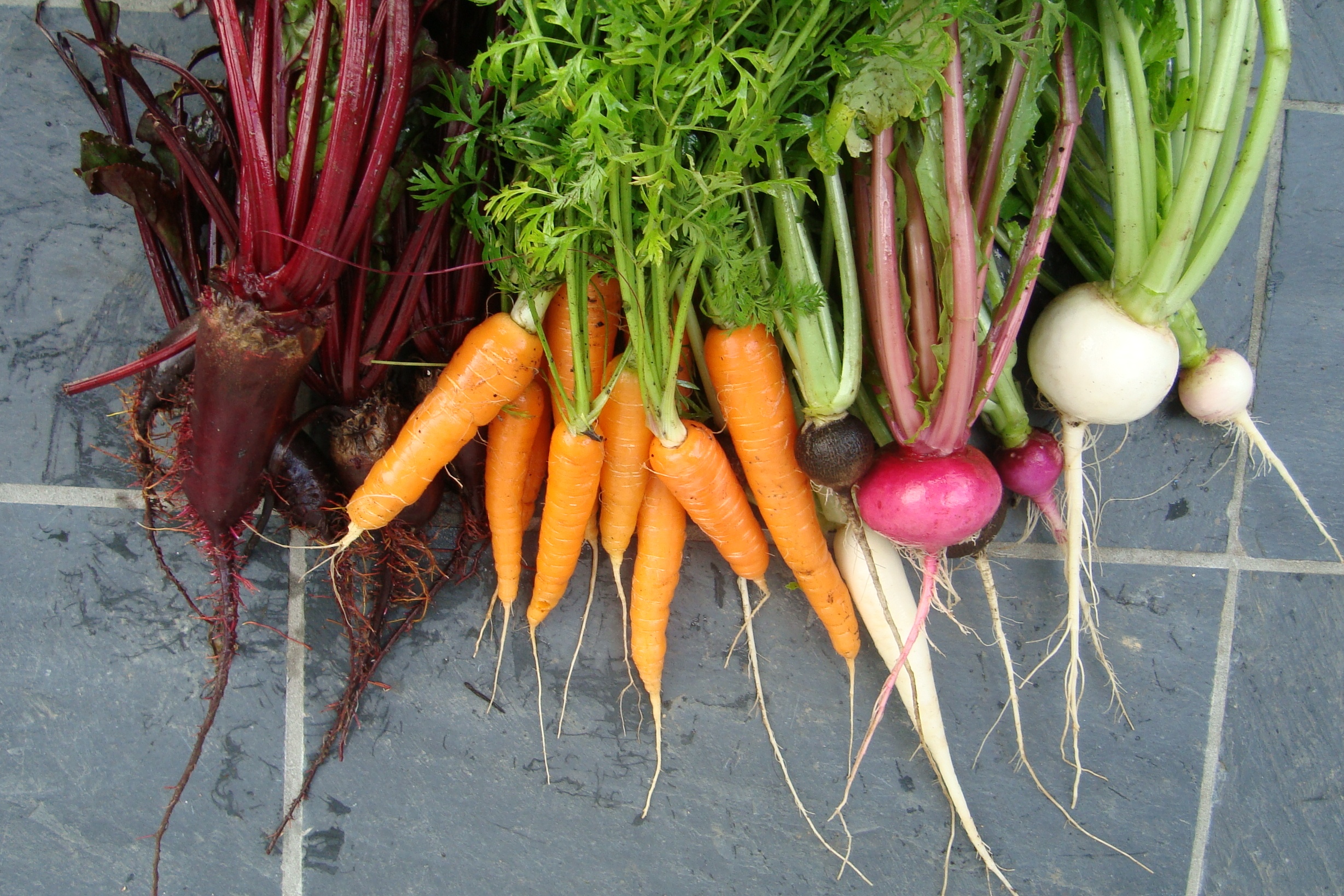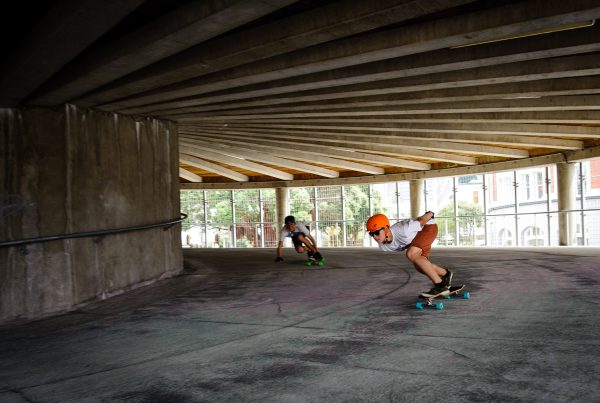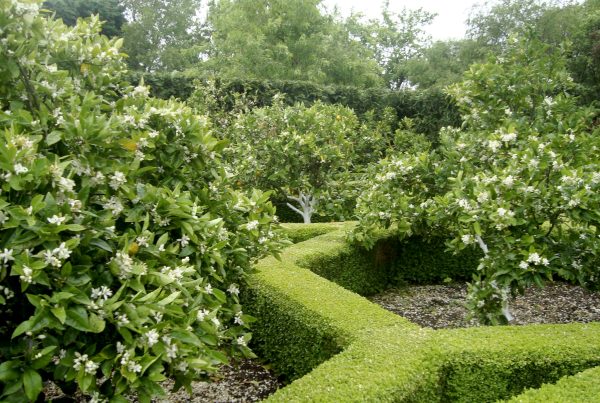
- Gridlock
Plant in a grid pattern so that each plant is the same distance from its neighbour in all directions. You’ll waste less space this way, particularly with raised beds where you don’t need walkways between rows. Mark squares on the soil with string or sticks to guide your planting.
- Get cosy
Grow plants closer together. It means you’ll get a smaller crop per plant but a larger yield per square metre. The leaves cover the soil quickly, keeping it moist and free from weeds.
- Big babies
Keep seedlings growing in pots when you don’t have room in your garden. The containers need to be large enough for the plants, which must be kept well fed and watered. You can sow seeds directly into the pots or move seedlings bought from a garden centre into larger pots whilst waiting to free up space.
- Vertical challenges
Select crops that climb or grow tall to take advantage of vertical space in a garden. Beans, tomatoes, corn, cucumbers, mini pumpkins and peas all fall into this category. They’ll need support either from existing garden structures or purpose-built for the job.
- Grow between
Use the space between slow-growing crops to interplant a quick-maturing one. Lettuces will fit between corn seedlings and radishes between carrots, for example. You’ll harvest one before the other has a chance to outcompete it.
- Crop quickly
Choose fast-maturing crops to make the best use of space. Radishes, rocket, Chinese cabbage and pak choi all mature rapidly. Start picking salad at the ‘microgreen’ or ‘baby leaf’ stages for an early harvest.
- Go gourmet
Some varieties are more compact than others — grow tiny carrots, golf-ball turnips and petite cabbages. Harvest standard vegetables when they are at ‘gourmet’ size for a sweet and speedy treat.
Concentrated cultivation may not come naturally to Kiwi gardeners accustomed to having plenty of growing space. Other cultures use their gardens more intensively, driven by scarcity of land. Once we start trying to squeeze more in, we can see the benefits of getting more from less and wonder why we ever thought we needed extra room.





